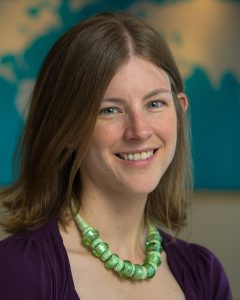The GHTC 2019 Keynote speakers are:
- Neil Sahota, Chief Innovation Officer, University of California (Emerging
Technologies Research & Policy Institute) - Thomas Coughlin FIEEE, President of IEEE-USA and President, Coughlin Associates
- Tess Russo, Portfolio Lead and Research Scientist at Global Good
The GHTC 2019 Plenary Panel sessions are:
- Disaster Recovery, Disadvantaged Communities and Displaced People Panel (Friday)
- Energy Panel (Friday)
- Health-Related Issues in Resource Constrained Environments Panel (Saturday)
INVITED KEYNOTE SPEAKERS
AI is the Disruptor: How to Wield the Tool Building the 21st Century
Neil Sahota, University of California (Irvine)
Abstract:
With the advent of artificial intelligence (AI) solutions (e.g. IBM Watson, DeepMind AlphaGo), organizations are the precipice of a major change. Much like the iPhone (released just 10 years ago), we are at a pivotal time where AI will be incorporated into so many aspects of our professional and personal lives. Organizations that have suffered through pain points they could not resolve or opportunities they could not achieve may now have a solution through cognitive computing. To bring the next generation of products and solutions to the forefront, organizations will need fresh ideas and new techniques and practices to best leverage AI capabilities. In turn, this means developing people who understand cognitive computing and how to use it for future product development. This presentation will illustrate the path ahead of you and how to begin your journey with AI.
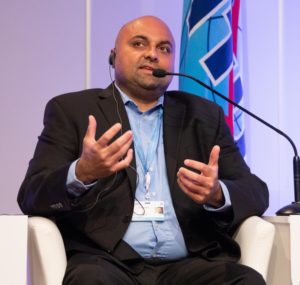 Neil Sahota (萨冠军) is an IBM Master Inventor, United Nations (UN) Artificial Intelligence (AI) subject matter expert, Faculty at UC Irvine, and author of Own the A.I. Revolution. With 20+ years of business experience, he works with organizations to create next generation products/solutions powered by emerging technology. His work experience spans multiple industries including legal services, healthcare, life sciences, retail, travel and transportation, energy and utilities, automotive, telecommunications, media/communication, and government. Moreover, Neil is one of the few people selected for IBM’s Corporate Service Corps leadership program that pairs leaders with NGOs to perform community-driven economic development projects. For his assignment, Neil lived and worked in Ningbo, China where he partnered with Chinese corporate CEOs to create a leadership development program.
Neil Sahota (萨冠军) is an IBM Master Inventor, United Nations (UN) Artificial Intelligence (AI) subject matter expert, Faculty at UC Irvine, and author of Own the A.I. Revolution. With 20+ years of business experience, he works with organizations to create next generation products/solutions powered by emerging technology. His work experience spans multiple industries including legal services, healthcare, life sciences, retail, travel and transportation, energy and utilities, automotive, telecommunications, media/communication, and government. Moreover, Neil is one of the few people selected for IBM’s Corporate Service Corps leadership program that pairs leaders with NGOs to perform community-driven economic development projects. For his assignment, Neil lived and worked in Ningbo, China where he partnered with Chinese corporate CEOs to create a leadership development program.
In addition, Neil partners with entrepreneurs to define their products, establish their target markets, and structure their companies. He is a member of several investor groups like the Tech Coast Angels and assists startups with investor funding. Neil also serves as a judge in various startup competitions and mentor in several incubator/accelerator programs.
Sustainable Development and Humanitarian Activities by IEEE Members in the USA
Tom Coughlin, President, IEEE-USA
Abstract:
IEEE’s tagline is “advancing technology for the benefit of humanity.” IEEE-USA is a special part of the IEEE that can address public policy issues with the US government and works closely with the IEEE Regions in the USA. Among the things that IEEE-USA has supported are some notable sustainability and humanitarian activities. These include the MOVE truck that is deployed with the Red Cross to disaster sites. This talk will present information on some of the sustainable development and humanitarian activities that have been going on in the USA, including work on relevant public policies. There are many opportunities within the US, as well as outside of the USA, to make significant contributions towards sustainable development and to help underserved communities. It is time that we addressed these opportunities, no matter where they reside.
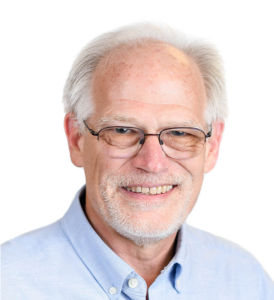 Tom Coughlin, President, Coughlin Associates is a digital storage analyst and business and technology consultant. He has over 37 years in the data storage industry with engineering and management positions at several companies. Coughlin Associates consults, publishes books and market and technology reports (including The Media and Entertainment Storage Report), and puts on digital storage-oriented events. He is a regular storage and memory contributor for forbes.com and M&E organization websites. He is an IEEE Fellow, President of IEEE-USA and is active with SNIA and SMPTE. For more information on Tom Coughlin and his publications and activities go to www.tomcoughlin.com.
Tom Coughlin, President, Coughlin Associates is a digital storage analyst and business and technology consultant. He has over 37 years in the data storage industry with engineering and management positions at several companies. Coughlin Associates consults, publishes books and market and technology reports (including The Media and Entertainment Storage Report), and puts on digital storage-oriented events. He is a regular storage and memory contributor for forbes.com and M&E organization websites. He is an IEEE Fellow, President of IEEE-USA and is active with SNIA and SMPTE. For more information on Tom Coughlin and his publications and activities go to www.tomcoughlin.com.
Tess Russo, Global Good
Abstract:
Millions of people suffer and die each year in poor countries from causes that humanity has the scientific and technical ability to solve. Funded by Bill Gates and focused on a shared vision with Nathan Myhrvold, Global Good invents technology to solve some of humanity’s most daunting problems. This talk will include discussion of one product currently in development — a hand-held soil analysis device to inform and optimize crop selection and soil management. This soil property-detecting spectrometer is battery-operated and designed to be appropriate for our target users in rugged conditions in low-resource settings.
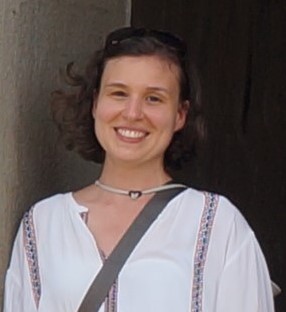 Tess Russo, Portfolio Lead and Research Scientist at Global Good, uses domain expertise in hydrology and broader Earth sciences to support technology development for smallholder farmers in Africa and South Asia. Tess was previously the R.L. Slingerland Early Career Professor of Geosciences at Penn State. She holds a B.S. in Mechanical Engineering from Tufts University, a Ph.D. in Earth and Planetary Sciences from the University of California, Santa Cruz, and was an Earth Institute Postdoctoral Fellow at Columbia University.
Tess Russo, Portfolio Lead and Research Scientist at Global Good, uses domain expertise in hydrology and broader Earth sciences to support technology development for smallholder farmers in Africa and South Asia. Tess was previously the R.L. Slingerland Early Career Professor of Geosciences at Penn State. She holds a B.S. in Mechanical Engineering from Tufts University, a Ph.D. in Earth and Planetary Sciences from the University of California, Santa Cruz, and was an Earth Institute Postdoctoral Fellow at Columbia University.
PLENARY PANELS
Disaster Recovery, Disadvantaged Communities and Displaced People Panelists
- John Berglund, Territorial Emergency/Disaster Services Director, The Salvation Army USA
- Stanley Atcitty, Navajo Nation, Distinguished Member of Technical Staff, Sandia National Laboratories
- Jim Conrad, IEEE MOVE, UNC-Charlotte USA
Energy Panelists
- Robin Podmore, Co-founder and Vice-Chair, IEEE Smart Village; President, Incremental Systems Corporation
- Ruomei Li, Secretary General (retired) of the Chinese Society of Electrical Engineering; Research Fellow, Tsinghua University
- Monica L. Brown, Founder and Executive Director, Africa Development Promise
- Olga Anderson, Education Chair, IEEE Smart Village
- Taylor Hudson, Technical Designer, Kilowatts for Humanity
Health-Related Issues in Resource Constrained Environments Panelists
- Tim Wood, Senior Program Officer, Bill & Melinda Gates Foundation
- Skye Gilbert, Deputy Director, Digital Health, PATH
- Prof. Judd Walson, START Center, University of Washington
Disaster Recovery, Disadvantaged Communities and Displaced People Panel
The topic of the panel is disasters, displaced and indigenous peoples – providing aid and assistance where the infrastructure has been destroyed or is nonexistent, and how can evolving technologies serve to support or enable this.
Panelists
Stan Atcitty, Distinguished Member of Technical Staff, Sandia National Laboratories
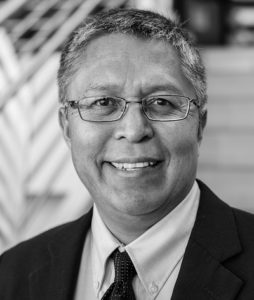 Dr. Stan Atcitty is a member of the Navajo Tribe and he received his BS and MS degree in electrical engineering from New Mexico State University in 1993 and 1995, respectively. In 2006, he was the first American Indian male to receive a Ph.D. in electrical and computer engineering from Virginia Tech University. He is presently a Distinguish Member of Technical Staff at Sandia National Laboratories in the Energy Storage Technology and Systems department. He leads the power electronics subprogram as part of the DOE Energy Storage Program and has gained international recognition for its state-of-the-art research and development under his leadership. Five of his projects have won the prestigious R&D 100 award from the Research & Development magazine. His interest in research is power electronics necessary for integrating energy storage and distributed generation with the electric utility grid. Stan has over 50 publications and holds four patents and another two pending. In 2007, he received the American Indian Science and Engineering Society Technical Excellence Award for his American Indian community involvement and technical achievement. He was recently featured in a middle school level children’s book titled “Energy Basics – Energized!” published by Sally Ride Science book in 2012. In 2013, he coauthored a book titled Power Electronics for Renewable and Distributed Energy Systems. In addition, President Barack Obama presented Stan with the Presidential Early Career Award for Scientist and Engineers on July 31, 2012. This is the highest honor bestowed by the US government for outstanding scientist and engineers who show exceptional leadership at the frontiers of scientific knowledge during the twenty-first century.
Dr. Stan Atcitty is a member of the Navajo Tribe and he received his BS and MS degree in electrical engineering from New Mexico State University in 1993 and 1995, respectively. In 2006, he was the first American Indian male to receive a Ph.D. in electrical and computer engineering from Virginia Tech University. He is presently a Distinguish Member of Technical Staff at Sandia National Laboratories in the Energy Storage Technology and Systems department. He leads the power electronics subprogram as part of the DOE Energy Storage Program and has gained international recognition for its state-of-the-art research and development under his leadership. Five of his projects have won the prestigious R&D 100 award from the Research & Development magazine. His interest in research is power electronics necessary for integrating energy storage and distributed generation with the electric utility grid. Stan has over 50 publications and holds four patents and another two pending. In 2007, he received the American Indian Science and Engineering Society Technical Excellence Award for his American Indian community involvement and technical achievement. He was recently featured in a middle school level children’s book titled “Energy Basics – Energized!” published by Sally Ride Science book in 2012. In 2013, he coauthored a book titled Power Electronics for Renewable and Distributed Energy Systems. In addition, President Barack Obama presented Stan with the Presidential Early Career Award for Scientist and Engineers on July 31, 2012. This is the highest honor bestowed by the US government for outstanding scientist and engineers who show exceptional leadership at the frontiers of scientific knowledge during the twenty-first century.
John Berglund, Territorial Emergency/Disaster Services Director, The Salvation Army USA
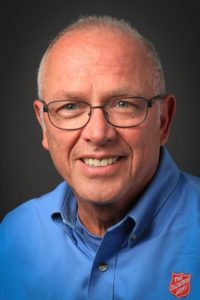 John Berglund serves as the Territorial Emergency Services Director for The Salvation Army’s US Western Territory, based in Rancho Palos Verdes, California. The territory’s service area includes thirteen Western states, including Alaska, Hawaii, Guam, the Marshall Islands, and Micronesia.
John Berglund serves as the Territorial Emergency Services Director for The Salvation Army’s US Western Territory, based in Rancho Palos Verdes, California. The territory’s service area includes thirteen Western states, including Alaska, Hawaii, Guam, the Marshall Islands, and Micronesia.
Previously, John served as the National Emergency Services Director at Salvation Army National Headquarters in Alexandria, VA, as well as the Emergency Services Director for the Greater New York Division (NYC), the Intermountain Division (Denver), and the Southwest Division (Phoenix). He also serves as a team leader and trainer for The Salvation Army’s International Emergency Services (IES), based in London, UK.
Mr. Berglund’s career in nonprofit arts and social services includes instructing nonprofit management at Arizona State University in Tempe, Arizona (1995-2005). For the past two decades, his focus has been on the role of the nonprofit sector in both domestic and international humanitarian work.
James Conrad, IEEE-USA President-elect and a professor of Electrical and Computer Engineering at the University of North Carolina at Charlotte USA
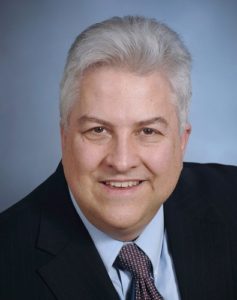 MOVE Community Outreach, an IEEE-USA Initiative, is an emergency relief program committed to assisting victims of natural disasters with short-term communications, computer, and power solutions. These temporary emergency relief provisions help those affected stay connected and make sure they can access the help they need. Services include phone charging, internet & communications support, and lighting to disaster victims. Partnering with the American Red Cross, IEEE’s U.S. highly-skilled volunteers provide this technical assistance via a Mobile Outreach VEhicle which is accessible during a disaster. Dr. Conrad is a charter member of the MOVE Community Outreach Project, serves a a driver of the vehicle, and serves as a volunteer who responds to natural disasters and other outreach activities where the vehicle’s technology is needed.
MOVE Community Outreach, an IEEE-USA Initiative, is an emergency relief program committed to assisting victims of natural disasters with short-term communications, computer, and power solutions. These temporary emergency relief provisions help those affected stay connected and make sure they can access the help they need. Services include phone charging, internet & communications support, and lighting to disaster victims. Partnering with the American Red Cross, IEEE’s U.S. highly-skilled volunteers provide this technical assistance via a Mobile Outreach VEhicle which is accessible during a disaster. Dr. Conrad is a charter member of the MOVE Community Outreach Project, serves a a driver of the vehicle, and serves as a volunteer who responds to natural disasters and other outreach activities where the vehicle’s technology is needed.
Energy Panel
The majority of projects in developing communities in the past few decades have been based on donation of technologies or “intervention” strategies. It can be argued that both of these strategies can actually be detrimental to communities and result in projects that fail within a few years of deployment due to a wide range of factors.
Instead, it is recommended that project take an approach based on bottom-up, trust-based community entrepreneurship focused on creating locally-owned holistically sustainable businesses. This strategy will be discussed from the perspective of a series of success stories told from the standpoint of a set of global development experts.
The panel will be led by IEEE Smart Village (ISV), a priority initiative of IEEE Foundation, which has seed-funded a series of in-country startups delivering electricity, intranet, education, and economic development to over 300,000 people worldwide. ISV also has an unparalleled track record of success in Africa, with nearly a dozen successful startups and zero project failures.
Questions to panelists:
- How did you develop an interest in sustainable development and/or the concept of smart villages?
- Where do you see the opportunity for Smart Village Entrepreneurs to generate revenue from productive applications of electricity?
- What are the challenges for women entrepreneurs?
- What opportunities exist for professional organizations (e.g IEEE) and NGOs to help create sustainable businesses?
- How can we raise funds to support the startup of these businesses?
- Where are you favorite locations for building smart villages?
Moderator: Alexander Anderson, Engagement Chair, IEEE Smart Village; CEO, EmpowerPack SPC
Panelists:
- Robin Podmore, Co-founder and Vice-Chair, IEEE Smart Village; President, Incremental Systems Corporation
- Ruomei Li, Secretary General (retired) of the Chinese Society of Electrical Engineering; Research Fellow, Tsinghua University
- Monica L. Brown, Founder and Executive Director, Africa Development Promise
- Olga Anderson, Education Chair, IEEE Smart Village
- Taylor Hudson, Technical Designer, Kilowatts for Humanity
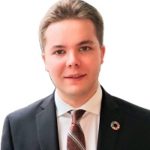 |
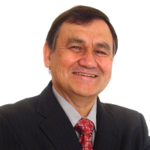 |
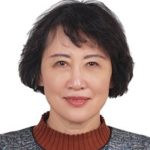 |
|
Alexander Anderson |
Robin Podmore |
Ruomei Li |
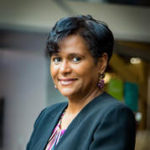 |
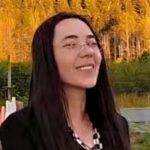 |
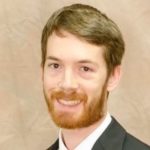 |
|
Monica L. Brown |
Olga Anderson |
Taylor Hudson |
Health-Related Issues in Resource Constrained Environments Panel
The Health Panel will share perspectives on the importance of multi-stakeholder, inter-disciplinary/cross-disciplinary collaboration, with representatives from different stakeholder groups (including the public, education and research, policy, societal and funding sectors).
Panelists
Tim Wood, Senior Program Officer, Bill & Melinda Gates Foundation
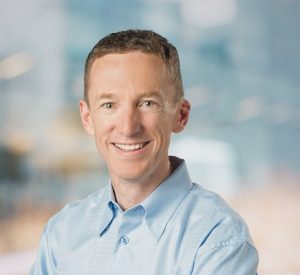 Tim Wood specializes in applying information technology to address the problems of poverty and health in developing countries. After 12 years at Microsoft working on software development, in 2002 Mr. Wood joined the Grameen Foundation’s Technology Center where he pioneered replication of the Grameen Village Phone program, launching sustainable initiatives in Uganda and Rwanda and co-authoring the Village Phone Replication Manual. Mr. Wood went on to implement money pilot programs for microfinance institutions in the Philippines and Kenya and spent four years as the Director of Mobile Health Innovation at the Grameen Foundation, creating the MOTECH platform to deliver multiple mobile-service initiatives at scale in India and Africa. Tim joined the Bill & Melinda Gates Foundation in 2013 and is working across a wide range of information technology initiatives with a particular focus on “digital health tools”, country data systems, and aligning global efforts around country-defined priorities.
Tim Wood specializes in applying information technology to address the problems of poverty and health in developing countries. After 12 years at Microsoft working on software development, in 2002 Mr. Wood joined the Grameen Foundation’s Technology Center where he pioneered replication of the Grameen Village Phone program, launching sustainable initiatives in Uganda and Rwanda and co-authoring the Village Phone Replication Manual. Mr. Wood went on to implement money pilot programs for microfinance institutions in the Philippines and Kenya and spent four years as the Director of Mobile Health Innovation at the Grameen Foundation, creating the MOTECH platform to deliver multiple mobile-service initiatives at scale in India and Africa. Tim joined the Bill & Melinda Gates Foundation in 2013 and is working across a wide range of information technology initiatives with a particular focus on “digital health tools”, country data systems, and aligning global efforts around country-defined priorities.
Skye Gilbert, Executive Director, Digital Square
Skye Gilbert serves as the Executive Director of Digital Square, a consortium (housed at PATH) of 40+ leading digital health organizations working together with countries to strengthen digital health systems. From 2016 to 2019, Skye supported strategy, business development, adaptive management, and data use efforts as deputy director of PATH’s Digital Health program. Her work touched on projects including the Data Use Partnership in Tanzania, the BID Initiative, the Joint Learning Network’s Information Technology Initiative, and many others. Prior to joining PATH in 2016, Skye worked on health and information systems, first as an academic researcher living in Senegal and China, then as a consultant at the Boston Consulting Group, and finally as a program and strategy officer at the Bill & Melinda Gates Foundation. Skye has a Global Executive MBA from INSEAD and a bachelor’s degree in economics, international studies, and psychology from the University of Pennsylvania.
Prof. Judd Walson, START Center, University of Washington
The Strategic Analysis, Research & Training (START) Center is a research consulting group established in 2011 by the Bill & Melinda Gates Foundation (BMGF) and the University of Washington (UW) Department of Global Health. Since 2011, START’s expert researchers have completed more than 150 projects for clients.
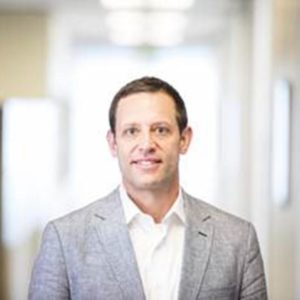 Judd Walson, MD, MPH is a Professor in the Departments of Global Health, Medicine (Allergy and Infectious Diseases), Pediatrics and Epidemiology (Adjunct). He has an extensive history of conducting large observational studies and clinical trials in Africa and Asia, including ongoing studies in Benin, Burkina Faso, Malawi, Kenya, Uganda, Ethiopia, Pakistan, Bangladesh and India. Dr. Walson’s research focuses on studies of neglected tropical diseases, enteric and diarrheal disease, HIV and endemic co-infections, and their relationship to child survival and early childhood development. Dr. Walson is the Principal Investigator of the DeWorm3 Project, a large multi-country cluster randomized trial designed to demonstrate the feasibility of interrupting the transmission of soil-transmitted helminths and is the co-Principal Investigator of the Childhood Acute Illness and Nutrition Network (CHAIN). He has extensive experience in the design and implementation of observational research and clinical trials, and works closely with numerous government and non-governmental organizations. Dr. Walson has mentored over 60 post-doctoral, doctoral and masters levels trainees both in the US and overseas.
Judd Walson, MD, MPH is a Professor in the Departments of Global Health, Medicine (Allergy and Infectious Diseases), Pediatrics and Epidemiology (Adjunct). He has an extensive history of conducting large observational studies and clinical trials in Africa and Asia, including ongoing studies in Benin, Burkina Faso, Malawi, Kenya, Uganda, Ethiopia, Pakistan, Bangladesh and India. Dr. Walson’s research focuses on studies of neglected tropical diseases, enteric and diarrheal disease, HIV and endemic co-infections, and their relationship to child survival and early childhood development. Dr. Walson is the Principal Investigator of the DeWorm3 Project, a large multi-country cluster randomized trial designed to demonstrate the feasibility of interrupting the transmission of soil-transmitted helminths and is the co-Principal Investigator of the Childhood Acute Illness and Nutrition Network (CHAIN). He has extensive experience in the design and implementation of observational research and clinical trials, and works closely with numerous government and non-governmental organizations. Dr. Walson has mentored over 60 post-doctoral, doctoral and masters levels trainees both in the US and overseas.





